Nine Winter Cooking Tips
Who doesn’t enjoy a great barbecue or some freshly baked bread in the dutch oven? After all, cooking outdoors is one of the things the outdoors was made for!
Cooking in the winter time can be vastly different than the rest of the year and it can present a number of challenges, especially if you’re trying to cook over an open fire or you’re on the ground.
Some of the biggest challenges of cooking outdoors in the winter is just the weather and the general environment, the cold can make the tasks much harder and sap your energy, it’s hard to open a can when your hands are shaking, or strike a match when you can’t even feel it in your fingers.
We’ve put together nine tips to help out with cooking in the winter, these can be really helpful. Remember though that there’s plenty more things to learn and there’s nothing that can replace some experience, so even if it’s just in your back yard, get out there and cook something!
If you live in an area that allows you to have fires, basic outdoor cooking is a skill that is worth learning. You might ruin a few meals as you are gaining experience, but there is a great deal of satisfaction in successfully cooking outdoors, especially over an open flame. Start small with simple meals and build up from there.
1. If you have an open fire you might struggle for tinder and fuel, as well as the wind that can often be stronger in the winter and consume your fuel faster, good fire management is key here. Things like a Windbreak, a reflector and dry fuel that burns hot can all help.

2. Cold weather cooking always takes more time and more energy compared to warm weather cooking. It is important to keep both of these things in mind when you are cooking. Your food will probably need more cooking time and make sure it is completely cooked before eating, food poisoning is a serious issue and getting sick while out in the wilderness can be life threatening.
3. When cooking over an open fire set up your working area methodically, have a place for everything you are going to use so that you can keep an eye on the food and not lose any items you need which can be easily done especially in snow or if there’s a lot of leaf litter. With open fire cooking, it is harder to regulate the temperature than cooking with a stove or in an oven. You also don’t want to burn your food while you hunt around for a utensil.
4. Burning fuel inside can generate gasses that, if concentrated enough can kill you. If you do need to cook indoors, ensure that you have adequate ventilation, always err on the side of caution with this, whenever possible cook outside if you’re camping in a tent or comparable shelter.
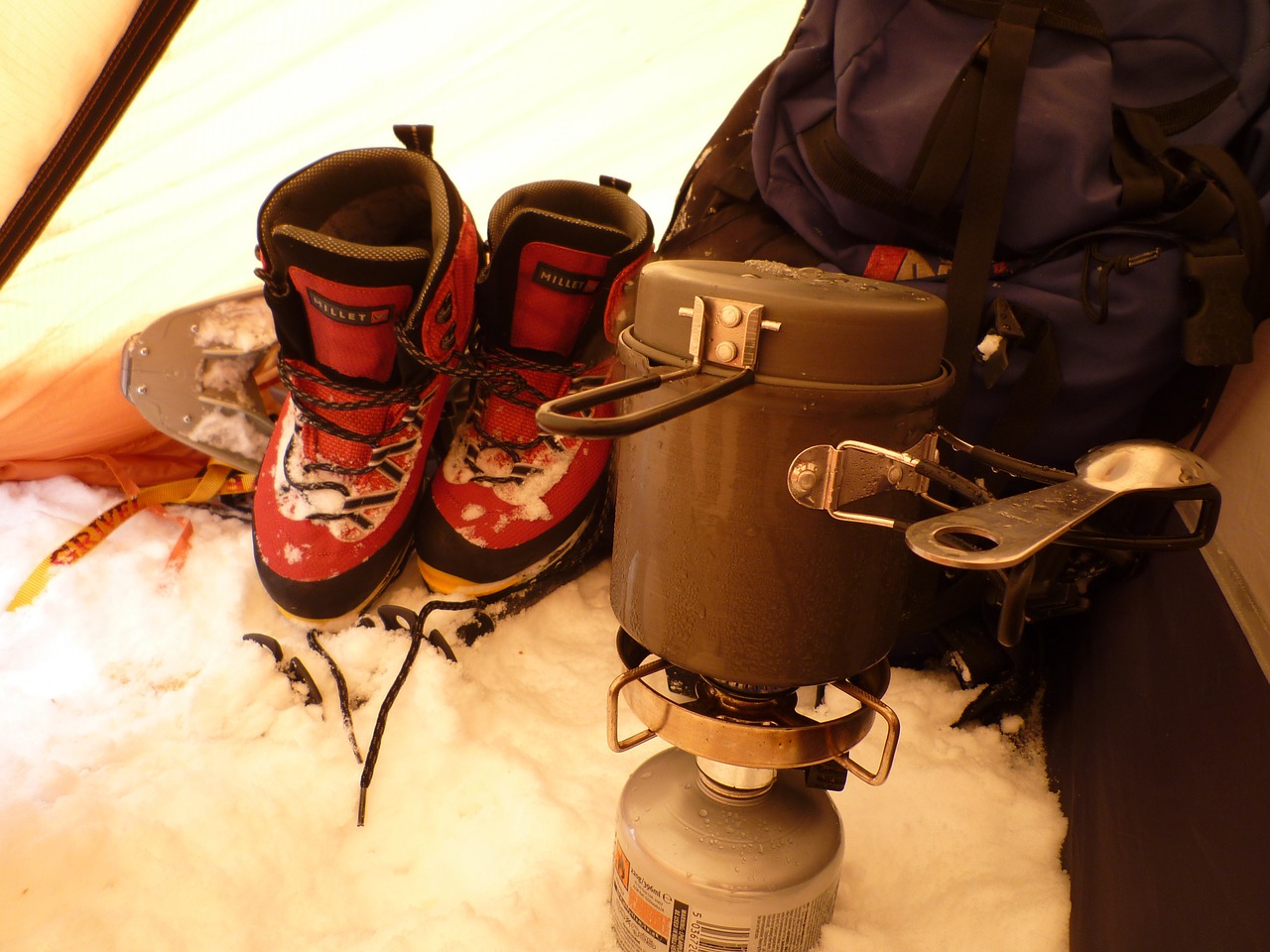
5. If you’re using a stove to cook, make sure that it is stable, you might have to dig down to solid ground or have something flat for the stove to sit on. You can part bury the stove but you would need to keep a close eye on it, just in case reflected heat melts the snow holding up your cooker. There are companies that allow you to hang gas cookers, they’re great for winter camping.
6. Humidity will affect how your cooked products turn out. For example, cooking bread in high humidity is very different than cooking it in low humidity. The humidity in winter is usually low, so cooking will be a bit different than in other times of the year. This makes wintertime a good time for cooking stews, soups, etc. in pots that contain additional liquid to reduce the risk of food becoming a bit drier than you want.
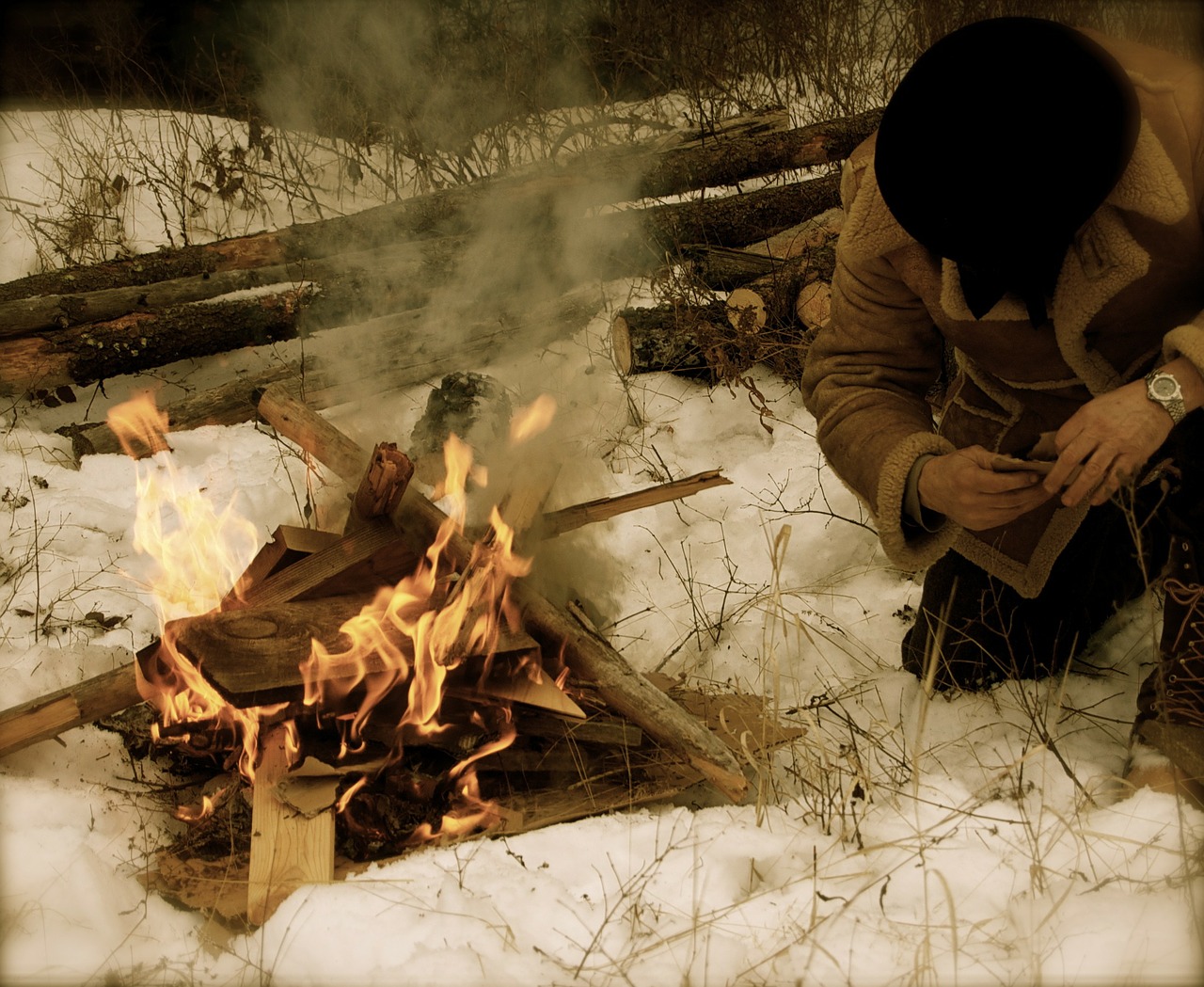
7. If the ground is covered in snow or is frozen, then keep the heat source separate from the ground. If you can raise the fire then that’s great, never light a fire on snow, it will just fall apart as it melts through. The cold ground will draw a lot of the heat and at the same time cause the snow/ice to melt, which will further impede your ability to cook and could even end up soaking your fuel so much it can’t burn.
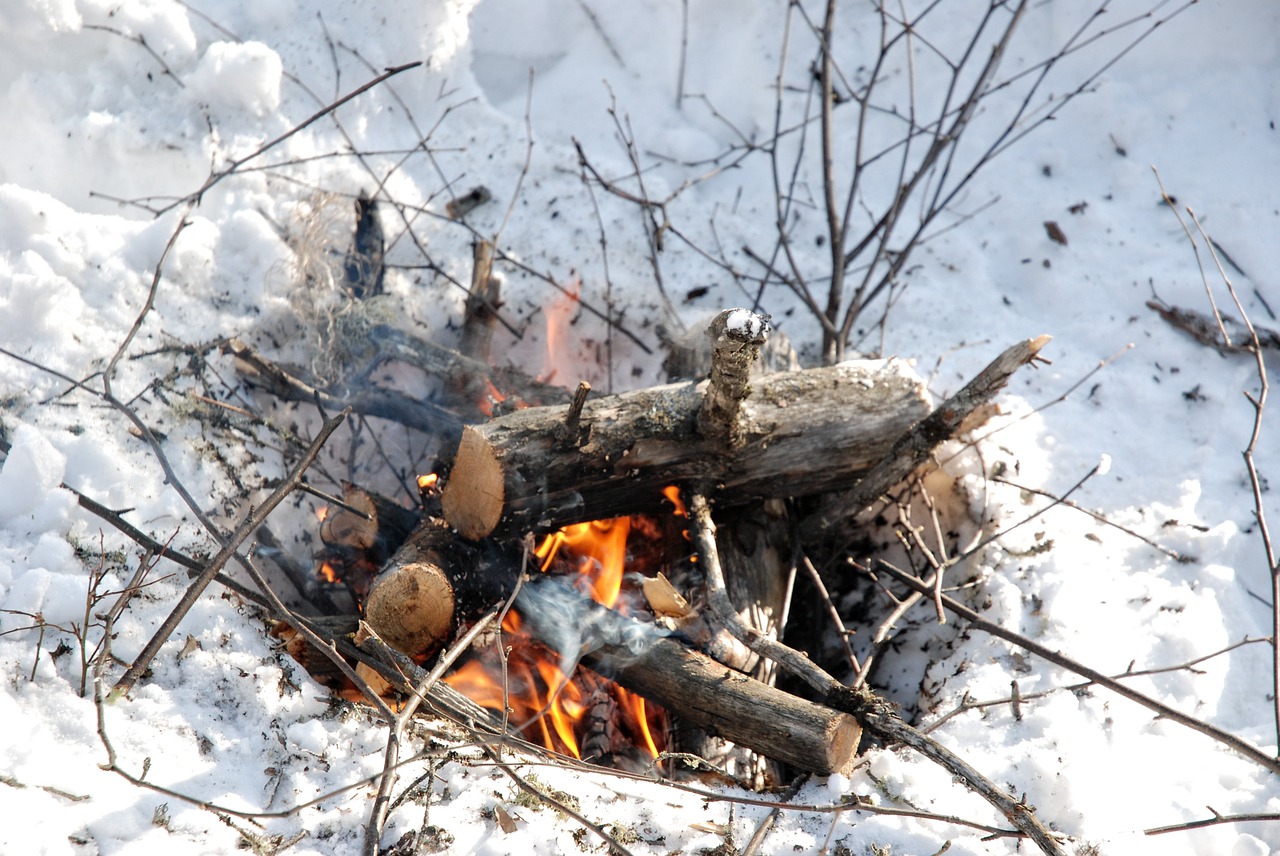
Clear an area down to the ground if you can and then insulate your fire from the ground, this can be a piece of metal laid on the ground or if needed use wood to create a platform, it will get consumed but should give you time to cook.
8. This is really important – Dry fuel will start much easier and burn much hotter than wet fuel, you will be able to control your fire and cook more efficiently with dry wood. If you notice that you do have quite a bit of wet fuel, start drying it out with the heat by arranging it around the fire, you can use the damper wood as a windbreak or reflector. This will allow the wood to burn better with less smoke when you eventually do need to use it.
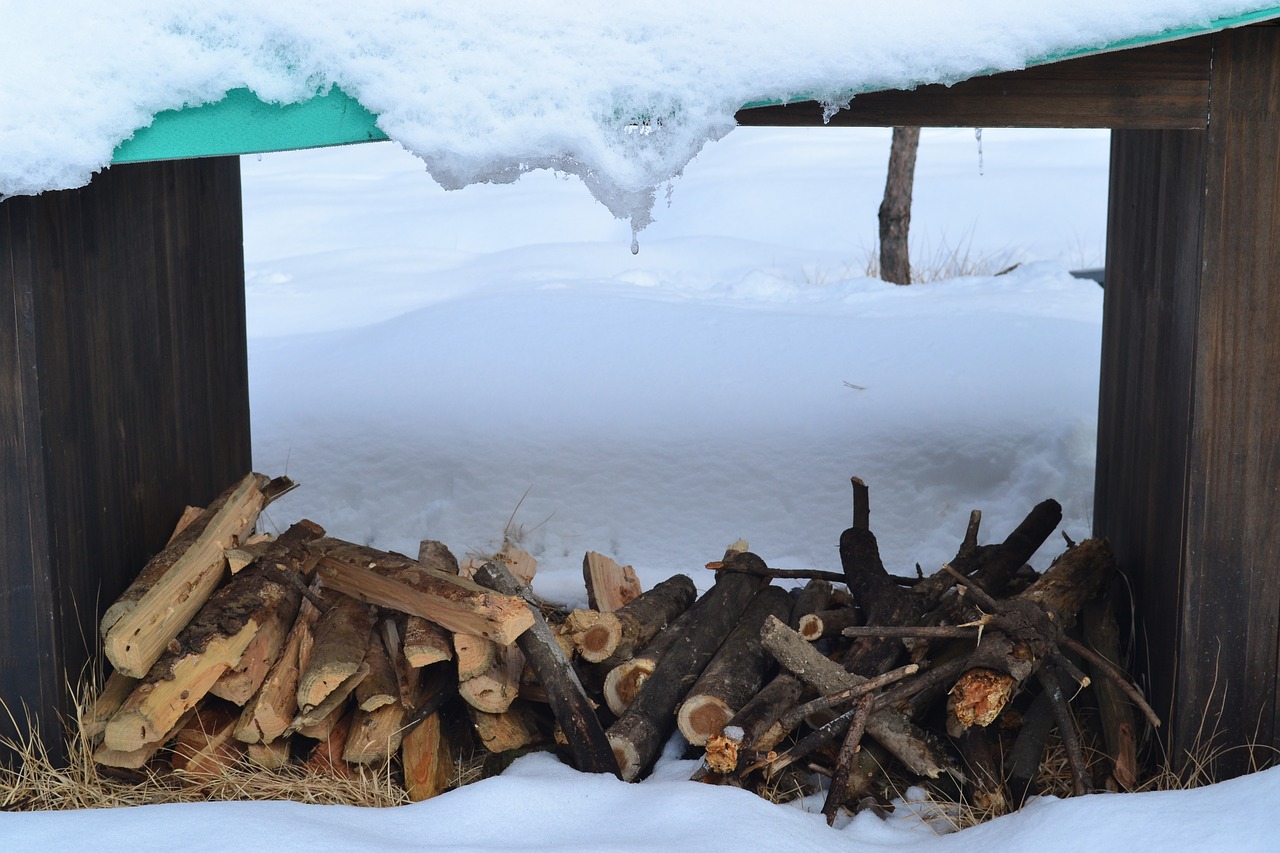
It’s worth investing the extra time to procure dry fuel, it could make all the difference between success and failure
9. Do everything you possibly can to contain the heat in your cooking device. Because of its even heat distribution, once it warms up, heavy cast iron pots and pans will help you cook with less fuel. Also, use lids on any available pot and leave the lid on as long as possible. This will let you cook with more heat and use less fuel.
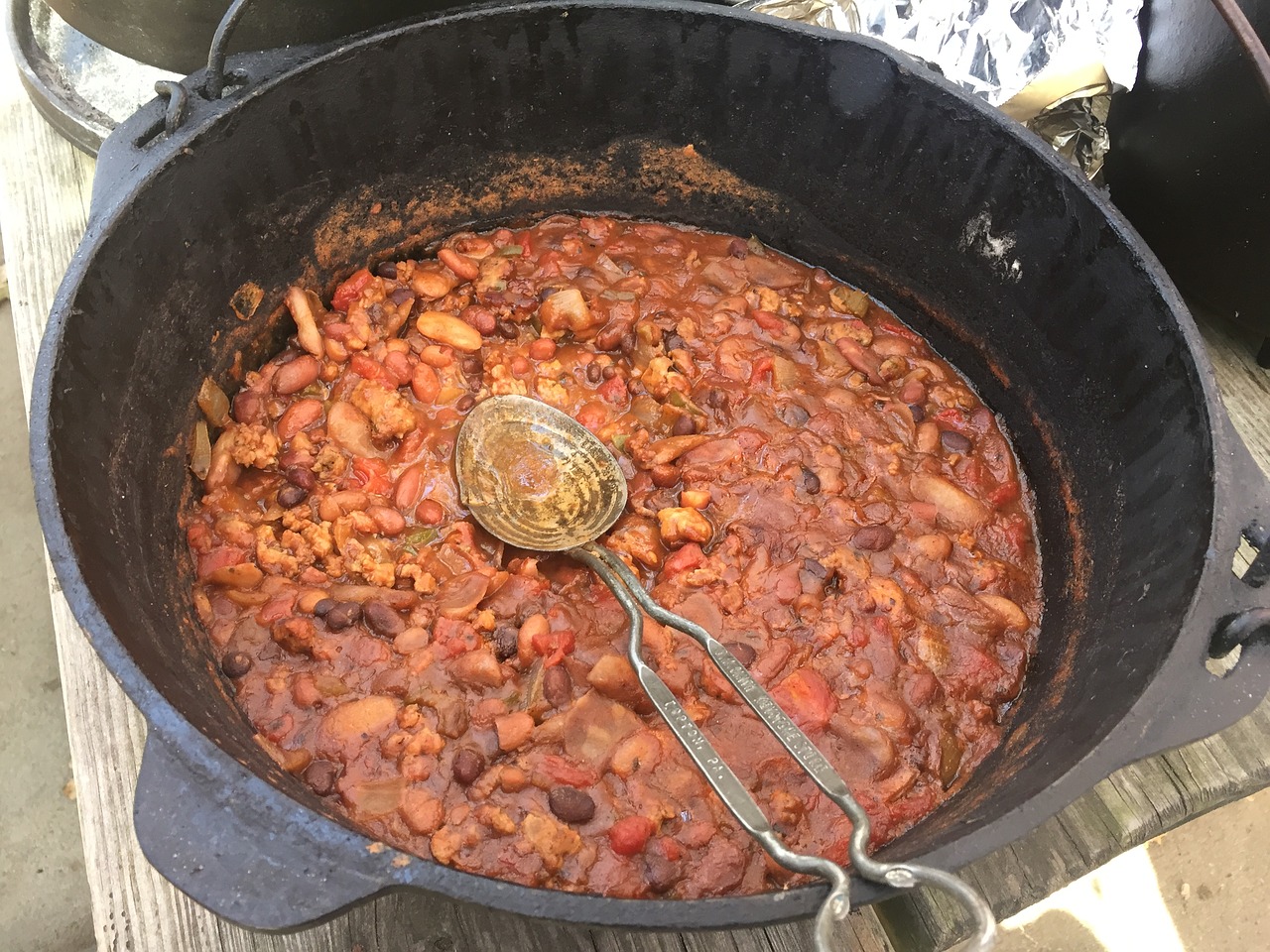
These are just a few tips to help you with your wintertime outdoor cooking, it’s a great thing to do on your own or with friends and family, everyone loves fresh food cooked over the fire and as your skills improve you’ll be pleasantly surprised at the variety of what you can cook and the different way’s of cooking it.
Don’t wait for an ideal time, get out there!
If you have any comments then please drop us a message on our Outdoor Revival facebook page
If you have a good story to tell or blog let us know about it on our FB page, we’re also happy for article or review submissions; we would love to hear from you.
We live in a beautiful world, get out there and enjoy it.
Outdoor Revival – Reconnecting us all with the Outdoors





